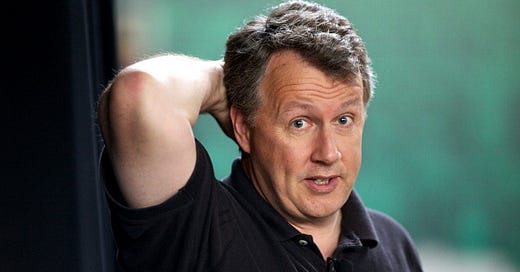Why was the Midwest left behind?
“The Midwest and the South are culturally compatible with entrepreneurship. Building is inherently human” — Kyla Scanlon
Welcome to Silicon Valley Outsider, a newsletter for aspiring startup founders and investors who live outside of the SF Bay Area. Subscribe today to become one of my 114 closest friends:
🧠Top of mind: Why was the Midwest left behind?
This week, I sat down with Lea Boreland (left) and Kyla Scanlon (right), co-authors of Midwest Arbitrage, an article about how and why the Midwest was left behind as Silicon Valley rocketed into the innovation stratosphere.
As a native Minnesotan, this is a topic near and dear to my heart — in an occasional dark night of the soul, I’ve wondered whether the Midwestern culture is even compatible with West-Coast entrepreneurship. Luckily, Lea and Kyla strongly disagreed with my pessimism.
I’ve published the entire conversation here, and strongly recommend that you check it out. Lea and Kyla are insightful, optimistic, and funny:
Young people in the Midwest aren't really told that startups exist, they don't know they have permission - much less incentive - to go explore a crazy idea and try to request millions of dollars from other folks to bring it to life… they maybe also don't identify with the Harvard dropout founder trope. Whereas Silicon Valley has proliferated the learned audacity to go start a company.
I would like to rent a hundred billboards in metro Detroit that just say "YOU SHOULD START A SOFTWARE COMPANY."
…the Midwest was once the "West," when the most entrepreneurial people migrated there in the 19th century. It's this narrative that the Midwest/South can't build like the West that is incredibly harmful. Today, the Midwest doesn't have the efficiencies of the West — the ecosystem, the infrastructure — and the Midwest isn't focusing on tech. But the answer isn't for the Midwest to change itself and start pretending to be the West. We don't need Silicon Valleys all over the country. Maybe we need different Valleys for different things!
✨What’s (not-so) new in the Valley
Tools, or Companies?: I found a fun tool this week — Spline, a 3D web design tool. I managed to make a box that says “Silicon Valley Outsider” after a few minutes of playing with the tool. (Click the link to spin it around in 3D land!) I’m sure the investment thesis they’re pitching as a company is that they can be the Canva or Webflow for 3D. It’ll be interesting to watch them grow.
Grownup Startups: This week, DoorDash (food delivery startup) went public at a $55 billion valuation. Back in 2013, Y Combinator invested in the firm when it was worth just a few hundred thousand dollars — and in honor of their IPO, YC published a video of their pitch at “Demo Day,” the culminating event of YC’s accelerator program that allows each startup to pitch for a huge audience of Silicon Valley’s top investors. (Note the scale of the Y-axis at 2:00; they were doing just 500 orders per week!)
Epic Product Demos: I only rarely talk about the big tech companies like Facebook, Microsoft, Apple, etc. in this newsletter, this video from Google explaining how search works is too epic not to share. They manage to explain the complexities of search (and why it’s still an “unsolved problem”) using normal-person words. My favorite!
👨 Someone to know: Paul Graham
This week, Airbnb went public at a $50 billion valuation — and doubled in value on day one to a new high of over $100 billion. This was Y Combinator’s second massive exit of the week, so big that it is hard to conceptualize:

The man who created Y Combinator is Paul Graham, better known as PG. His blog is truly legendary, and a must-follow for any self-respecting Silicon Valley acolyte. This week, PG posted Billionaires Build, which distills a lot of PG/YC-essential wisdom into one bite-sized package:
Make something people want…
The ideal combination is the group of founders who are "living in the future" in the sense of being at the leading edge of some kind of change, and who are building something they themselves want. Most super-successful startups are of this type…
Competitors are rarely what kills startups. Poor execution does. But you should know who your competitors are, and tell the YC partners candidly what your relative strengths and weaknesses are…
Mundane as it sounds, that's the most powerful motivator of all, not just in startups, but in most ambitious undertakings: to be genuinely interested in what you're building. This is what really drives billionaires, or at least the ones who become billionaires from starting companies. The company is their project.
This may sound too simple to be true, but YC’s track record speaks for itself. This is a classic example of simplicity on the other side of complexity — while anyone can say something that sounds simple, only folks like PG can say simple things that work.
And, really, wouldn’t it be even more surprising if, after wading through thousands and thousands of early stage startups and pulling off miracle after miracle, PG couldn’t articulate how he found so many future billionaires hiding in the masses?
You can follow PG on Twitter, or check out his blog to learn more.
Catch you on the outside,
Christian






Loved this article! I'm from Ohio and beelined to Silicon Valley the moment I got the opportunity, but I've always felt a bit of guilt for not sticking around to help grow the entrepreneurial spirit of my home area. With companies such as Nationwide and Cardinal Health, Columbus is an insurance beacon. It really doesn't make sense to make the next big AI company here... but there's a couple of First Rate insurance startups (Beam, Root) with big VC investments. A cultural/mindset change is also needed though, because as Lea said, "we don't know that we have permission to request a million dollars for our idea".